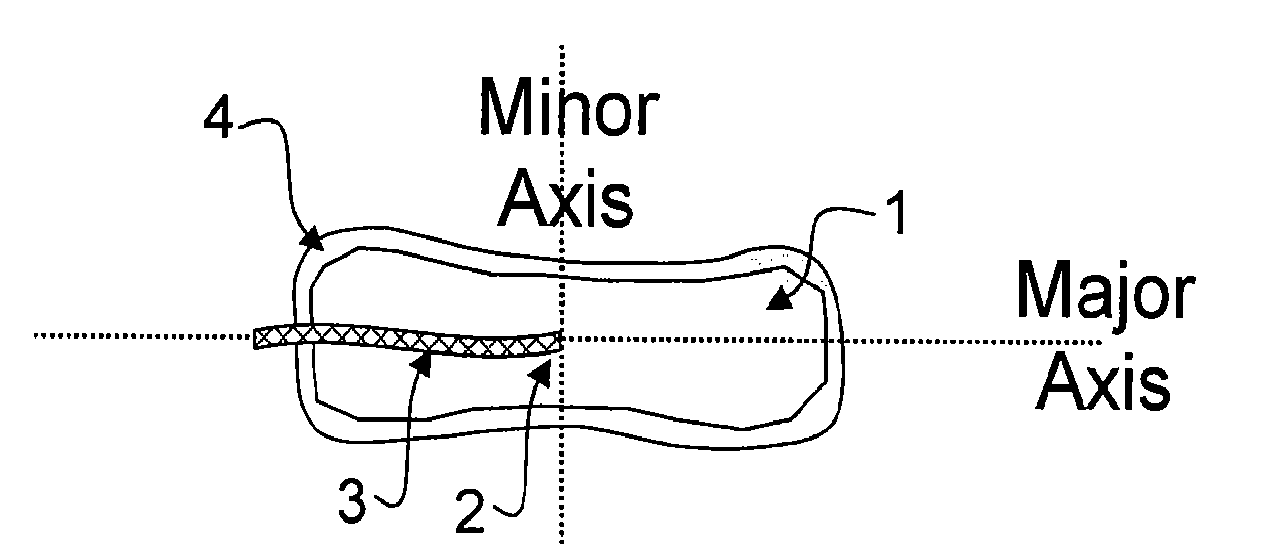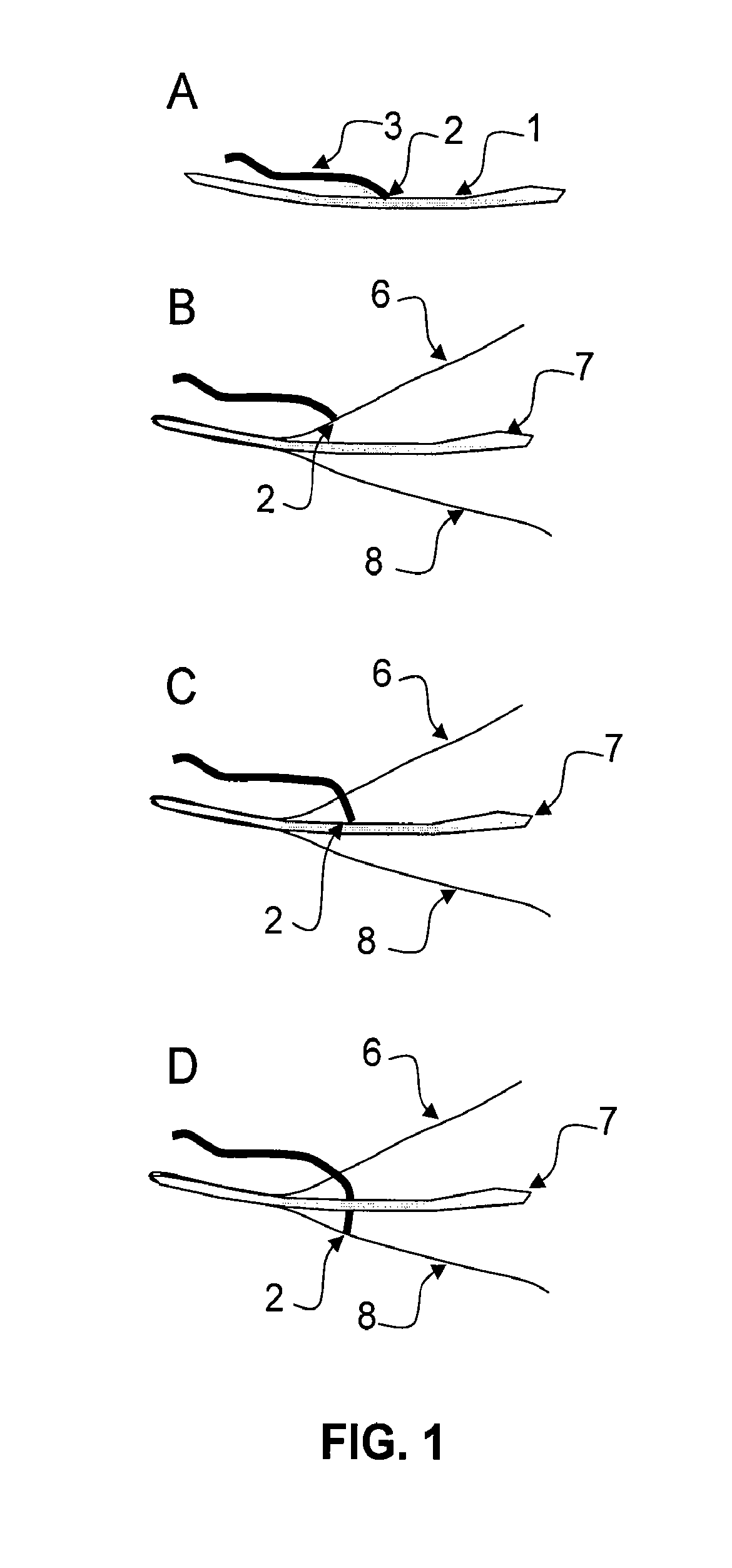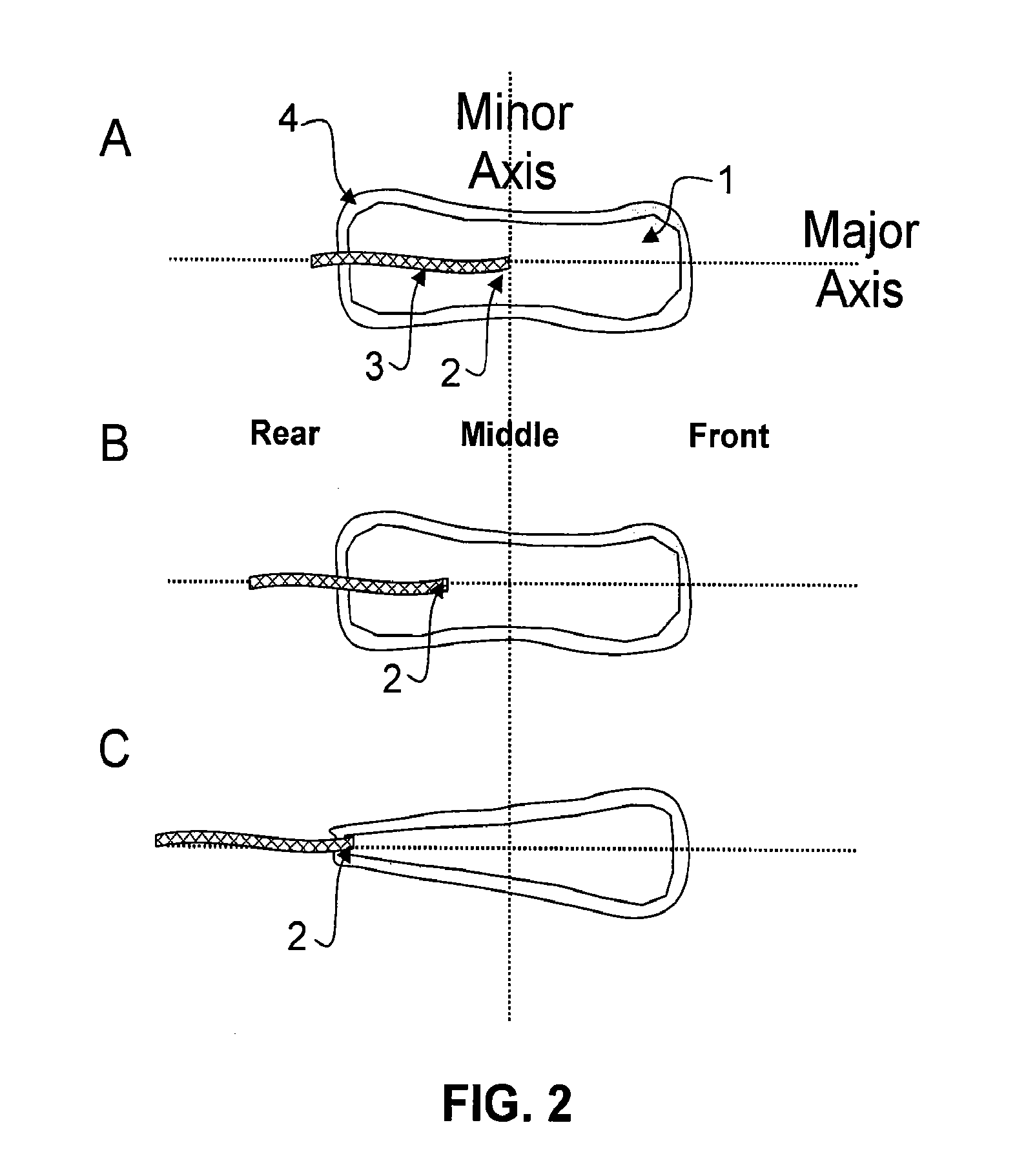Sanitary Napkin with Braid
- Summary
- Abstract
- Description
- Claims
- Application Information
AI Technical Summary
Benefits of technology
Problems solved by technology
Method used
Image
Examples
example 1
Pad Structure
[0033]FIG. 1A shows a side view of the pad (1), illustrating the braid (3) attached to the pad (2) roughly in the center of the elongated pad. FIG. 1B-D demonstrate attachment to the inner liner (6), the absorbent core (7) and the outer liner (8). FIG. 2A shows a top view of the inner side of the pad with the braid (3) attached in the middle of the pad (2). FIG. 2B shows the braid attached in the rear portion of the pad. FIG. 2C shows a braid attached to the end of a “thong” shaped pad. FIG. 3 shows a perspective view.
example 2
Pad Manufacture
[0034]In one embodiment, the pad of the invention is manufactured using a sanitary napkin pad, and incontinence pad machine. Production can easily run a wide range of raw materials and produce sanitary napkins with various manufacturing structures because the machine has been designed to assure simple and rapid size changes. In one embodiment, ultrathin cores with binders provide a number of fluff layers with an integrated SAP powder layered with non-woven airlaid transition layers. Braided attachments are incorporated with adhesive on the topsheet prior to folding, stacking and packing. Thong pantyliners with a 180 degree turn are woven directly into the braided string. After the braid is incorporated, the napkins enter a tri-folding, stacking and packing unit, which completes the production process.
EXAMPLE 3
Ultrasonic Sealing
[0035]The braided attachment can be added after the sanitary napkin or incontinence pad is assembled. In one embodiment, a braid with three thr...
example 3
Pad Underwear
[0036]In another embodiment, the pad is configured to provide an entire disposable thong underwear (FIG. 5). The braid (3) terminates in a stretch waistband (5), and the front of the pad is elongated, flared and connected to the waistband 5. In this instance, the pad (1) is broader in the front, and tapers towards the braid, thus providing a comfortable, yet disposable underwear and pad combination. In this configuration, the outer surface of the pad is chosen to be aesthetically pleasing and comfortable to wear, but inexpensive to manufacture. In another embodiment the braid is elongated to form the waistband. A strip of Velcro®, adhesive or loops along the front edge of the pad allows attachment to the waistband at varying configurations. The braid can be a single length up to 100 cm with an adjustable clip at the end for connection at the 90° turn (9) allowing the wearer to customize the length of the braid. In another embodiment a second braid is attached somewhere ...
PUM
 Login to View More
Login to View More Abstract
Description
Claims
Application Information
 Login to View More
Login to View More - R&D
- Intellectual Property
- Life Sciences
- Materials
- Tech Scout
- Unparalleled Data Quality
- Higher Quality Content
- 60% Fewer Hallucinations
Browse by: Latest US Patents, China's latest patents, Technical Efficacy Thesaurus, Application Domain, Technology Topic, Popular Technical Reports.
© 2025 PatSnap. All rights reserved.Legal|Privacy policy|Modern Slavery Act Transparency Statement|Sitemap|About US| Contact US: help@patsnap.com



